For individual group collaborations, please see the groups’ pages.
Research agreements
The model implemented in the creation of IBEC as result of research groups of the University of Barcelona and the Polytechnic University of Catalonia collaborating together and being affiliated to IBEC to conduct their research through our institute has been reinforced over the years with our policy on core partnerships, in which collaborative research is the main aim.
Institució Catalana de Recerca i Estudis Avançats (ICREA)
Details
The Catalan Institution for Research and Advanced Studies (ICREA) is supported by the Catalan Government to recruit top scientists for the Catalan R&D system to lead new research groups, strengthen existing ones and set up new lines of research. The foundation works closely with Catalan universities and research centres through long-term agreements that allow ICREA researchers to participate in research groups in these centres.
Barcelona Global Health Institute (ISGLOBAL)
Details
IBEC and the Barcelona Global Health Institute (ISGLOBAL) signed an official agreement in 2010 to facilitate collaboration in certain areas of common interest. This led to the establishment of a joint unit where both institutions contribute with resources (researchers, spaces, etc) to develop diagnostic and therapeutic nanomedicine-based systems to be applied to malaria (Nanomalaria group).
Biomedical Research Networking Center in Bioengineering, Biomaterials and Nanomedicine (CIBER-BBN)
Details
Spain’s Centro de Investigación Biomédica en Red (CIBER), a legal entity financed by the Instituto de Salud Carlos III, creates large multidisciplinary and multi-institutional networks of research centres that will integrate basic and clinical research. Several IBEC group leaders work in programmes within CIBER, such as CIBER-BBN, which covers bioengineering, biomaterials and nanomedicine. Research is focused on disease prevention, diagnostics systems and technologies for specific therapies, such as regenerative medicine and nanotherapies. Another programme within CIBER, CIBERES – Centro de investigación en red de enfermedades respiratorias – involves Cellular and Respiratory Biomechanics group leader Daniel Navajas and addresses respiratory illnesses.
Centro de Investigación Biomédica en Red Enfermedades Neurodegenerativas (CIBERNED)
Details
Centro de Investigación Biomédica en Red Enfermedades Neurodegenerativas (CIBERNED), which covers neurodegenerative diseases, maintains its own legal personality as it is managed by Fundación CIEN. It is composed of 63 research groups working on basic and clinical research. José Antonio del Río, who works on projects within CIBERNED, puts IBEC’s number of group leaders working within CIBER programmes at 12.
Fundació Privada CELLEX
Details
The Cellex Foundation and the ”la Caixa” Banking Foundation are funding two major projects coordinated by the Fetal Medicine Research Centre, Fetal i+D (Hospital Clínic and Hospital Sant Joan de Déu). The projects comprise four sub-projects, one of which, Robotics and Electronic Biosensors, is coordinated at IBEC.Video: http://medicinafetalbarcelona.org/cellex/
Hospital Universitari Germans Trias i Pujol (IGTP)
Details
A joint research Unit between IBEC and the Hospital Universitari Germans Trias i Pujol (IGTP) is coordinated by Raimon Jané, head of IBEC’s Biomedical Signal Processing and Interpretation group, and the hospital’s Miquel Àngel Gasull.
Institut Hospital del Mar d’Investigacions Mèdiques (IMIM)
Details
Under a collaboration agreement that directly impacts on clinical translation activities, the SPECs group of Prof. Paul Verschure at IBEC works with the Neurovascular Group led by Dr. Ana Rodriguez-Campello at IMIM.
Initiatives managed by IBEC
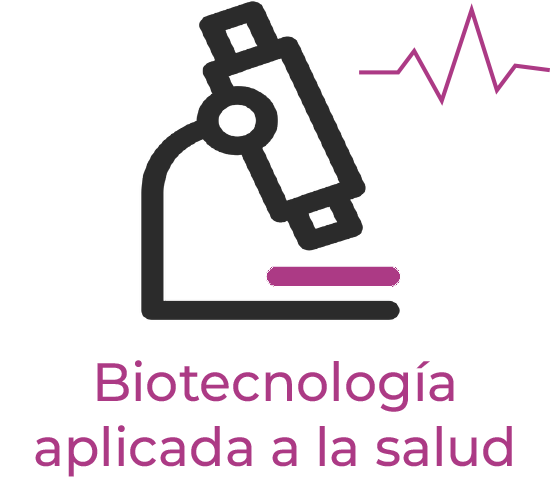
Complementary plan in Biotechnology applied to health
The Complementary Plans are collaborations with Spain’s Autonomous Regions in R&D actions in which common priorities of state and regional plans converge, allowing synergies to be established in strategic areas reflected in the state and regional Smart Specialization Strategy (RIS3). The aim is to create synergies, align the implementation of funds, and establish common priorities.
Within the eight areas of scientific-technical interest, IBEC coordinates the one for biotechnology applied to health (Plan Complementario de Biotecnología Aplicada a la Salud) to develop tools for diagnosis, prognosis, and advanced or targeted therapies in personalized medicine.

Spanish Nanomedicine Platform (NanoMed Spain)
Managed by IBEC, the Spanish Nanomedicine Platform (NanoMed Spain) is a forum that brings together public research centres, hospitals, companies and government representatives to unite public and private interests in the development of common strategies. NanoMed Spain represents the interests of its stakeholders in the burgeoning and multidisciplinary area of nanomedicine, and is supported by the Spanish Ministry of Economy and Competitiveness (MINECO), through the Spanish Programme for R+D+I oriented to Societal Challenges.
Alliances
| Emergent Behavior of Integrated Cellular Systems Center (EBICS) |  |
| EBICS’ mission is to create a new scientific discipline for building living, multi-cellular machines that solve real world problems in health, security, and the environment. Participating Institutions are Massachusetts Institute of Technology, Georgia Institute of Technology, University of Illinois at Urbana-Champaign, City College of New York, Morehouse College, University of California-Merced, Boston University, Gladstone Institutes, Princeton University, Tufts University and the University of Georgia. The EBICS International exchange program allows US students to spend time at IBEC while provide exceptional training and the opportunity to network with students and faculty from diverse scientific and engineering backgrounds. | |
| EIT Health |    |
| A consortium of more than 50 core partners and 90 associate partners from leading businesses, research centres and universities from across 14 EU countries. EIT Health was designated as an EIT Knowledge and Innovation Community (KIC) by the EIT Governing Board on 9th December 2014. IBEC is a member of the EIT Health e.V. and its Supervisory Board, represented by IBEC’s Director Josep Samitier. | |
| EIT Health Spain |    |
| EIT Health Spain is an Association that has partners from three regions (Catalonia, Madrid and Valencia) involving universities, research institutes and companies in the three areas of the innovation triangle: research, education and business creation. IBEC is a member of the Association and its Governing Board, represented by IBEC’s Director Josep Samitier. | |
| Centres de Recerca de Catalunya (CERCA) |   |
| IBEC is a member of CERCA, the Government of Catalonia’s means of supervising, supporting and facilitating the activities of Catalan research centres. | |
| BIOCAT | 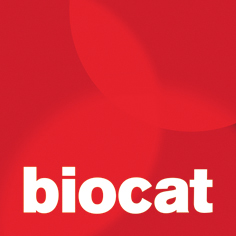  |
| BIOCAT coordinates, develops and promotes the biotechnology, biomedicine and medical technology sectors in Catalonia, to make the region an international reference in terms of high quality research, competitive networks and an increasingly dynamic knowledge transfer system. One of BIOCAT’s strategic initiatives is B·Debate, which aims to drive top-notch international scientific events to foster debate, collaboration and open exchange of knowledge among experts of renowned national and international prestige in order to tackle complex challenges of high interest in the life sciences. Member | |
| BioNanoMed Catalunya |   |
| Fostered by IBEC and under BIOCAT’s leadership, BioNanoMed Catalunya is an alliance of research centres, hospitals and companies to share know-how and resources and facilitate new developments in nanomedicine. | |
| Bioinformatics Barcelona (BIB) | |
| Bioinformatics Barcelona (BIB), a network of 25 members including universities, research centres, hospitals, major scientific facilities, and pharmaceutical, technology and bioinformatics companies, aims to respond to the challenges posed by the growth of big data and position Barcelona as a world leader in bioinformatics. IBEC participated in the development of the platform, which is supported by the Government of Catalonia and the Obra Social “la Caixa”, and which aims to involve all Barcelona organizations working in the field of health and food. | |
| CataloniaBio & HealthTech | 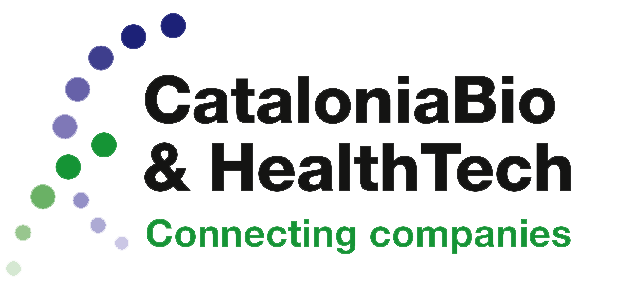  |
| Since 2014, IBEC has been a member of the HealthTech Cluster, an alliance aimed at promoting and contributing to the competitiveness of the health technology sector in Catalonia. This merged with CataloniaBio to become CataloniaBio & HealthTech, which brings together research organizations, companies, hospitals and other bodies to compete globally by promoting innovation and internationalization of partners and improving conditions within the sector. | |
| Human Brain Project (HBP) |   |
| Pau Gorostiza participates in the Systems and Cognitive Neuroscience of the Human Brain Project (HBP), one of two Future and Emerging Technology (FET) Flagships funded by the European Commission to address the big scientific and technological challenges of the age through long-term, multidisciplinary efforts. The HBP project involving Pau, Wave Scaling Experiments and Simulations (WaveScalES), is coordinated by Pier Stanislao Paolucci at the Instituto Nazionale di Fisica in Rome and will study the neuronal networks underling sleep and wakefulness under normal conditions and in disease. The HBP aims to put in place a cutting-edge, ICT-based scientific Research Infrastructure for brain research, cognitive neuroscience and brain-inspired computing. The project, which started a promotes collaboration across the globe, and is committed to driving forward European industry. | |
| European Technological Platform on Nanomedicine (ETPN) |   |
| IBEC has been a voting member of the European Technological Platform on Nanomedicine (ETPN) since 2008. | |
MoUs
IBEC pursues opportunities to collaborate on a long-term basis with other world-class national or international research institutes, organisation or other bodies with a collaborative agreement or Memorandum of Understanding (MoU).
These formalise the participation of IBEC and the partner institute in cooperative scientific projects, promote the exchange of researchers, aid dissemination of information, the sharing of resources and the organization of joint events and activities.
IBEC has MoUs in place with the following organisations:
International
| University of Maryland, College Park, MD (with ICREA) | |
| Interuniversitair Micro-electronica Centrum, Leuven, Belgium | |
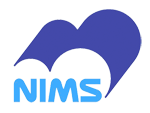  | National Institute for Materials Science (NIMS), Tsukuba, Japan |
| Institute of Tissue Regeneration Engineering (ITREN), Dankook University, Korea | |
| University of Warwick’s Centre for Cognitive and Neural Systems, UK | |
  | Interstaatliche Hochschule für Technick Buchs (NTB), Switzerland |
| Università degli Studi di Brescia, Italy | |
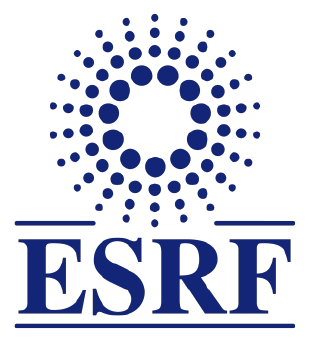  | The European Synchrotron Radiation Facility (ESFR), France |
| Max Planck Institute for Intelligent Systems (MPI-IS), Germany |
National
  | Fundació Clínic/Hospital Clínic, Barcelona |
  | Bellvitge Institute for Biomedical Research (IDIBELL), Barcelona |
| Hospital de la Santa Creu i Sant Pau, Barcelona | |
  | Universidad CEU San Pablo, Madrid |
  | Institute of Functional Genomics, Universitat de Vic |
  | Vall d’Hebron Research Institute (VHIR), Barcelona |
  | Institut d’Investigació en Ciències de la Salut Germans Trias i Pujol (IGTP), Badalona |
  | Pompeu Fabra University, Barcelona |
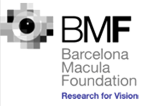  | Barcelona Macula Foundation |
  | Fundació Joan Costa Roma (JCRF), Terrassa |
| Open University of Catalonia (UOC) | |
| Biomedical Research Networking Center in Bioengineering, Biomaterials and Nanomedicine (CIBER-BBN) | |
| Centre de Medicina Regenerativa de Barcelona (CMRB), Barcelona | |
  | Institut Hospital del Mar d’Investigacions Mèdiques (IMIM) |
| Institut De Recerca I Tecnologia Agroalimentaries (IRTA), Barcelona | |
| CIBER; under a special agreement, IBEC’s Nanotechnology Platform | |
  | The Barcelona Global Health Institute (ISGLOBAL)’s Center for Research in Environmental Epidemiology (CREAL) and the Instituto de Diagnóstico Ambiental y Estudios del Agua (IDAEA-CSIC) to study DDT concentration detection in treated surfaces to tackle malaria |
FEDER
EUROPEAN REGIONAL DEVELOPMENT FUND
The ERDF aims to strengthen economic and social cohesion in the European Union by correcting imbalances between its regions. It provides financial support to improve research, technological development, and Innovation.
PLAN ESTATAL I+D+I (2017-2020)
Project Reference: EQC 2019-005937-P
Title: High performance analytical platform for the characterization of nanoparticles and macromolecules.
| Actions / Spending Concepts | TOTAL BUDGET | FEDER
(50%) | Co-financ. (50%) |
| Field flow fractionation system (AF4) with MALS (Multi-Angle Light Scattering), backscattering DLS (Dynamic Light Scattering) and RI (Refractive Index) -Multiflow AF4-MALS-DLS-RI detectors. | 257.760,00 € | 128.880,00 € | |
| Gel Permeation and Size Exclusion Chromatography System (GPC / SEC) with Advancing Multiple Detector. | 123.594,30 € | 61.797,15 € | |
| Ultra-high performance liquid chromatography (UHPLC) system with mass spectrometry | 241.016,90 € | 120.508,45 € | |
| 622.371,20 € |
POPE 2014-2020
Project Reference: FICTS1420-02-27
Title: Equipment Mask Aligner for Nanotechnology Unit (U7) from NANBIOSIS
| Actions / Spending Concepts | TOTAL BUDGET | FEDER
(50%) | Co-financ. (50%) |
| Acquisition of a Mask Aligner | 57.600 € | 28.800 € | 28.800 € |
PO CATALUNYA 2014-2020
Project Reference: 2015 FEDER/S-01
Title: Adaptation of new laboratory spaces and acquisition of scientific equipment for the laboratories of the Institute of Bioengineering of Catalonia used for the development of technologies for regenerative medicine and nanomedicine.
| Actions / Spending Concepts | TOTAL BUDGET | FEDER
(50%) | Co-financ. (50%) |
| Laboratories refurbishment an acquisition of laboratory furniture | 500.000 € | 250.000 € | 250.000 € |
| Acquisition of scientific equipment | 900.000 € | 450.000 € | 450.000 € |
| 1.400.000 € | 700.000 € | 700.000 € |
PO CATALUNYA 2007-2013
Reference: IU041775
Title: Adaptation of new laboratory spaces and acquisition of scientific equipment for the laboratories of the Institute of Bioengineering of Catalonia used for the development of technologies for regenerative medicine and nanomedicine.
| Actions / Spending Concepts | TOTAL BUDGET | FEDER
(50%) | Co-financ. (50%) |
| Laboratories refurbishment an acquisition of laboratory furniture | 1.371.803 € | 685.901,5 € | 685.901,5 € |
| Purchase of IT equipment | 75.478 € | 37.739,1 € | 37.739,1 € |
| Purchase of auxiliar equipment | 723.615 € | 361.807,3 € | 361.807,3 € |
| Acquisition of scientific technologic equipment | 1.489.608 € | 744.803,9 € | 744.803,9 € |
| Acquisition of a Nanotechnology Platform (Spaces and equipment) | 589.497 € | 294.748,4 € | 294.748,4 € |
| 4.250.000 € | 2.125.000 € | 2.125.000 € |
MRR
PLAN ESTATAL I+D+I (2017-2020)
Convocatoria de 2021 de ayudas para la adquisición de equipamiento científico-técnico
Project Reference: EQC2021-007313-P
Project Reference: Upright multi-photon microscope for intravital fluorescence imaging and stimulation
| Actions/Spending Concepts | TOTAL BUDGET |
| Upright multi-photon microscope for intravital fluorescence imaging and stimulation |
747.688,25 € |
| Refurbishment of the room for the microscope |
















